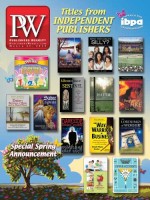It’s January 2011 and I’m in a school auditorium in Ardsley, N.Y., standing in the aisle in front of 60 seventh-graders, reading from I Represent Sean Rosen, my first attempt at writing a novel. It’s a funny Hollywood story that takes place right now. Sean Rosen is a 13-year-old boy who dreams of being a writer. I’m not a parent, and I haven’t been 13 for a while, so I went to school for a reality check.
I got one, of course. While I’m reading, the boy on the aisle whispers something to the boy sitting next to him. They laugh. The book is funny, but they’re not laughing at the book. They’re laughing at me. I’m instantly back in seventh grade. Is my fly open? Holding pages, standing that close to the audience with no lectern, it’s impossible to check. It took me one distracted paragraph to figure that out.
I survived. My fly wasn’t open. I never found out why those boys were laughing. But the kids like Sean Rosen. They like Sean Rosen! I felt the way parents must feel. Other kids like my kid. I was happy, but mostly I was relieved.
They not only liked my kid, they also liked Sean’s kids—the ones in the movie he successfully pitches to Hollywood. After I read each chapter, I asked a bunch of questions. “Was there anything you didn’t understand?” “What do you think is going to happen next?” “Would you go to Sean’s movie?” “How would you describe Sean?”
Years before this, after getting my film degree at Northwestern, before becoming a full-time screenwriter, I took an unlikely side trip. I got an M.B.A. from Harvard and worked for the Coca-Cola Co., managing the creation and introduction of Ramblin’ Root Beer. A huge part of my job was commissioning and interpreting market research. We tested the flavor, the name, the package graphics, and advertising. It was unthinkable to introduce a new product to the public without first getting consumer reactions to it.
Imagine my surprise when I learned that this is not the case in book publishing. An editor reads a manuscript, makes a judgment call about whether it will sell, then buys it. Maybe the marketing people read it too, but none of it—not the title, the jacket design, or the book itself—is ever shown to readers before it’s on sale. Whenever I raised this issue or came back from my follow-up visits to Ardsley Middle School talking about what I learned from reading chapters and playing Sean Rosen podcasts (www.SeanRosen.com), Virginia Duncan, my editor and publisher at Greenwillow/HarperCollins, would say, “Yeah, but you can’t trust that.”
I know. In fact, while at Coca-Cola, I wrote a white paper to the marketing department about the abuse of market research. It’s easy to manipulate data to justify whatever action you want to take. Still, even knowing that the kids I meet may not be representative of every kid in the country, I can’t resist getting reactions from my prospective readers. It helps. Any person who writes comedy will tell you to try it out in front of a live audience. I tell the Ardsley students to read everything they write out loud, ideally to another person. The questions people ask you are often the questions you need to ask yourself. I also tell the kids that you can’t react to everything someone tells you about your writing. Virtually every successful movie, book, or play got rejected, got some bad reviews, and possibly even prompted yawns from seventh-graders at some point.
For focus groups about root beer, I’d watch from behind a two-way mirror. In school, I’m standing right there. I can pick up the group vibe, and I get a detailed view of what five kids think—the ones who constantly raise their hands. To give the others a chance, I left behind a questionnaire for kids to answer anonymously. “What should Jeff Baron think about as he continues to work on the Sean Rosen series?”
“Try to remember what it was like when he was 13.”
“Leave the reader on a couple of cliff-hangers. Make it POP!”
“Introduce more characters.”
“The parts we read were very funny. Keep up the humor.”
“Have his dreams get really high and then crush them.”
These were not so different from the notes I got from my editor. I don’t know if that makes her or me right about market research for books, but I’m going to keep talking to kids as I work on the next book, if only to try to remember what it was like when I was 13.



 Volume 260
Issue 12
03/25/2013
Volume 260
Issue 12
03/25/2013





